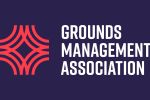Coronavirus Latest

4 years ago | By Stephen Watkins
Coronavirus planning: Latest advice and Q&A
As Coronavirus (COVID-19) continues to dominate the headlines, we want to share with you the latest set of guidelines the Government has advised us to follow.
This is a situation that is moving quickly, and we suggest you read carefully all the materials we share.
--
Coronavirus has been declared a global pandemic by the World Health Organisation. COVID-19 has now appeared in multiple locations in the UK and is highly contagious.
The likelihood of widespread cases now seems inevitable, and we believe it’s essential to have plans and advice in place for your staff.
The Government’s action plan is as follows: https://www.gov.uk/government/publications/coronavirus-action-plan
The plan contains specific advice on what to do if someone becomes ill in the workplace. Please read and understand these recommendations.
https://www.gov.uk/government/publications/guidance-to-employers-and-businesses-about-covid-19/guidance-for-employers-and-businesses-on-covid-19
The most recent advice is that if a person feels unwell, with symptoms such as a new and continuous cough, they should self-isolate at home for seven days. If someone feels unwell in the office, you should have an isolation room set aside where they can be taken and call 111 for help and advice.
Q&A
What happens if a staff member feels unwell? Should they come to work?
• If anyone feels unwell, they should stay at home. Government directives as of 12.03.2020 now recommend ‘stay-at-home guidance: self-isolation for 7 days if you have a fever or persistent dry cough. Please ensure staff read this.
• https://www.gov.uk/government/publications/covid-19-stay-at-home-guidance/stay-at-home-guidance-for-people-with-confirmed-or-possible-coronavirus-covid-19-infection
• ECB staff are advising individuals with mild symptoms, including a new and continuous cough, a sore throat, headache and muscle ache, should remain at home for at least seven days and contact their line manager as soon as possible.
What happens if someone becomes unwell in the workplace and believes they may have the coronavirus?
• If the person is unwell and has travelled to Category A or Category B countries (see below) in the last 14 days, they should move to an area at least two metres away from other people.
• You should designate an isolation room on your premises for this purpose.
• The individual who is unwell should call NHS 111 from their mobile, or 999 if an emergency (if they are seriously ill, injured or their life is at risk) and outline their symptoms, including saying which country they have returned from in the last 14 days.
• They should wait for advice from NHS 111, or for an ambulance to arrive, and remain at least two metres from other people. There is more advice at https://111.nhs.uk/covid-19
How can we reduce the virus spread in the workplace?
We can all play a part. The Government has provided a clear outline of how to reduce the potential for spread of the virus:
• Avoid touching people, surfaces and objects. Cover your mouth and nose with a disposable tissue when coughing or sneezing. Put the tissue in a bag or pocket, then throw the tissue in the bin.
• Follow public health authorities’ advice, such as washing your hands and using alcohol-based hand-gels.
• Regular cleaning of frequently touched surfaces will help to reduce the risk of infection.
• Check and follow the latest Foreign and Commonwealth Office advice when travelling and planning to travel.
• Accept that the advice for managing COVID-19 for most people will be self-isolation at home and simple over-the-counter medicines.
• Use NHS 111 (or NHS Direct Wales) (including online, where possible), pharmacies and GPs responsibly. This is further explained on the NHS website: When to go to A&E and Choose Well Wales
What to do if a member of staff or the public with suspected COVID-19 has recently been in your workplace
• For contacts of a suspected case in the workplace, no restrictions or special control measures are required while laboratory test results for COVID-19 are awaited. But you should assess the risks posed to the working environment.
• In this instance, there is no need to close the workplace or send other staff home at this point. Most possible cases turn out to be negative. Until the outcome of test results is known, there is no action that the workplace needs to take.
What to do if a member of staff or the public with confirmed COVID-19 has recently been in your workplace
• Closure of the workplace is not recommended by the government in this case. However, you should look to be proactive and make necessary steps to ensure the wellbeing of staff, while awaiting the PHE Health Protection Team.
• In this instance, the PHE local Health Protection Team should be in touch to discuss the case, identify people who have been in contact with them and advise on any actions or precautions that should be taken - including a risk assessment for the environment and individuals as well as advice on cleaning of workplace and facilities.
What to do if individuals in the workplace have had contact with a confirmed case of COVID-19
• If a confirmed case is identified at work, the local Health Protection Team will identify close contacts and provide the relevant staff with advice. Those who have had close contact will be asked to self-isolate at home for 14 days from the last time they had contact with the confirmed case and follow the government home isolation advice sheet
• Staff who have not had close contact with the original confirmed case do not need to take any precautions and can continue to attend work.
Should someone come to work if they are considered more vulnerable to Coronavirus, such as those in older age groups or with additional health risks?
• You should ensure that individuals do not put themselves at additional risk through being at work and that they are supported by those around them.
• More vulnerable individuals should speak to their line managers and consider whether there are elements of work which may put them at greater risk, e.g. public transport or mass gatherings, and whether home working should be considered. Individuals may also wish to seek medical clarification around their situation.
What if you are due to be travelling for business, domestically or internationally?
• We are reviewing the situation around non-essential domestic business travel. Please consider whether your travel is essential to the running of your organisation. If trips are not time critical or essential, please look to reschedule to a later date when the situation has stabilised.
I am planning travel and / or a holiday. What should I do?
• There is increasing worldwide disruption and any travel should be carefully researched. There is no change in current advice and all staff should check government and travel advice carefully both in relation to planning trips and returning from abroad. https://www.gov.uk/guidance/travel-advice-novel-coronavirus
Category A Countries:
• Wuhan city and Hubei Province, China
• Iran
• Daegu, Cheongdo and Gyeongsan (South Korea)
• Italy from 9th March
Category B Countries
• Mainland China outside Hubei
• South Korea outside the special care zones
• Cambodia
• Hong Kong
• Japan
• Laos
• Macau
• Malaysia
• Myanmar
• Singapore
• Taiwan
• Thailand
• Vietnam
Latest News
Events
5
Oct
2023
Super 1s @Point 4 - weekly
5:00 PM
9
Jan
2024
Coach Development - St Marys High School
7:00 PM
30
Jan
2024
Coach Development at St Marys HS
7:00 PM
11
Feb
2024
Women's Indoor Cricket League - Whitecross HS.
10:00 AM
13
Feb
2024
Mixed Cricket Camp - St Marys HS
9:00 AM
16
Feb
2024
Girls only Cricket Camp - St Marys HS
9:00 AM
18
Feb
2024
Women's Indoor Cricket League - Whitecross HS
10:00 AM
25
Feb
2024
Women's Indoor Cricket League - Whitecross HS
10:00 AM
3
Mar
2024
Women's Indoor Cricket League - Whitecross HS
10:00 AM


















.jpg)
